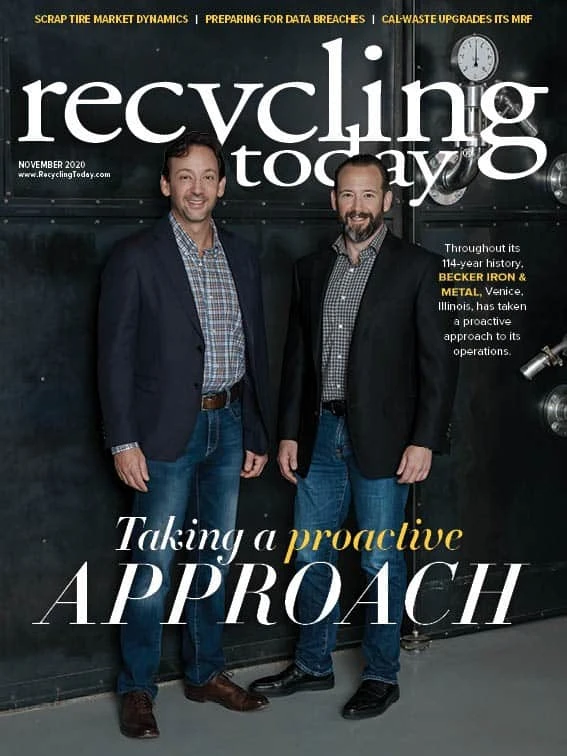
Sean Daoud
Vice President and Shareholder at PNW Metal Recycling
Only weeks after graduating from high school in 2008, Sean Daoud began a full-time career in the scrap recycling industry at Rivergate Scrap Metals, a Portland, Oregon, company that was started by his father, Fouad Daoud.
Instead of taking a few years off work to go to college for an undergraduate degree, Sean says he ended up working mostly day shifts at his father’s scrap yard while taking night classes at Portland State University. “Being in a family business, I had a little flexibility since we had night shift and day shift, and I could fill in where I was able to,” he says. “But once I hit my sophomore year [of college], I took night classes and worked most days through college for my first degree. It was a good experience that taught me work ethic and time management.”
“It’s easier to say, ‘Let me find out,’ than to give a roundabout answer and have to backtrack.”
Sean says he has worked from the ground up at his father’s business, including working various jobs in the yard and operating equipment. Today, he is vice president of and a shareholder in PNW Metal Recycling, which formed in 2017 as the result of the merger of Rivergate and R.S. Davis Recycling. Sean says he is focused mostly on managing finance, accounting and public relations at PNW Metal Recycling. He also currently serves as the president of the Institute of Scrap Recycling Industries (ISRI) Pacific Northwest chapter and volunteers for several other ISRI committees.
Recycling Today (RT): What was it like for you to help with the merger of Rivergate and R.S. Davis?
Sean Daoud (SD): As owners of the business, we figured out how we were going to split up our assets. How are we going to put together compensation for all of our team management? What will be in our benefits plans? What are our goals? We were organizing all that with the ownership team at the time in 2017. There was a lot that went into it, and it was a good experience. It definitely helped me to learn what it will take for other mergers and acquisitions we may make down the road.
RT: What are some goals that PNW is focused on right now?
SD: What we’re focused on is trying to keep up with the changing regulations in Asia and the Middle East and Europe of the quality expectations of commodity definitions.
We’ve invested in a wire chopper that’s operating at one of our locations, and we’ve invested in a new downstream system for metal sortation out of the shredded material. So, for us, we’re looking at technology; we’re looking at how we can make sure we send the least amount of metal to the landfill but also be able to accept as many commodities as we possibly can from having better sortation technologies and processing equipment.
RT: What are some lessons you learned working in the scrap recycling industry?
SD: Never be ashamed to say you don’t know. It’s easier to say “Let me find out,” than to give a roundabout answer and have to backtrack. I think many of us make that mistake early on in [our careers].
I had a buying opportunity come up early on in my career. [I] got photos of material, showed them to my dad and told him, “This is aluminum.” He said, “No, that’s steel.” I drove all the way out to this location, thinking I would get 35,000 pounds of aluminum. I get there, and it’s steel, but I had already quoted the company a price for aluminum. I learned the hard lesson. So, I would say be mindful [that] it’s OK not to know.

Explore the November 2020 Issue
Check out more from this issue and find your next story to read.
Latest from Recycling Today
- ReMA board to consider changes to residential dual-, single-stream MRF specifications
- Trump’s ‘liberation day’ results in retaliatory tariffs
- Commentary: Waste, CPG industries must lean into data to make sustainable packaging a reality
- DPI acquires Concept Plastics Co.
- Stadler develops second Republic Services Polymer Center
- Japanese scrap can feed its EAF sector, study finds
- IRG cancels plans for Pennsylvania PRF
- WIH Resource Group celebrates 20th anniversary





